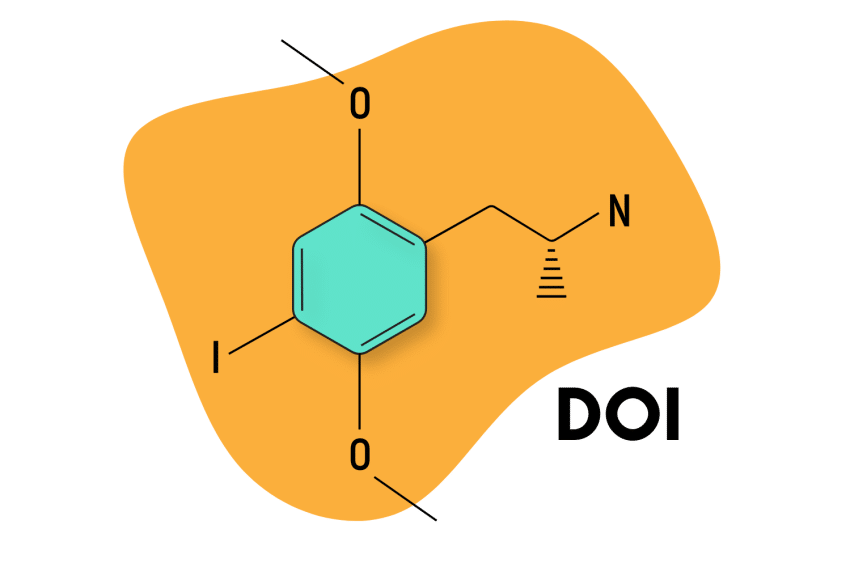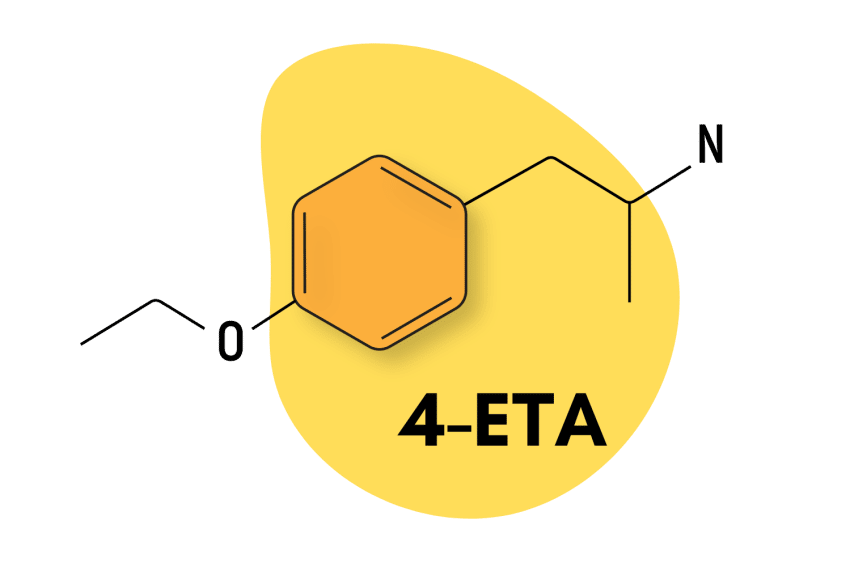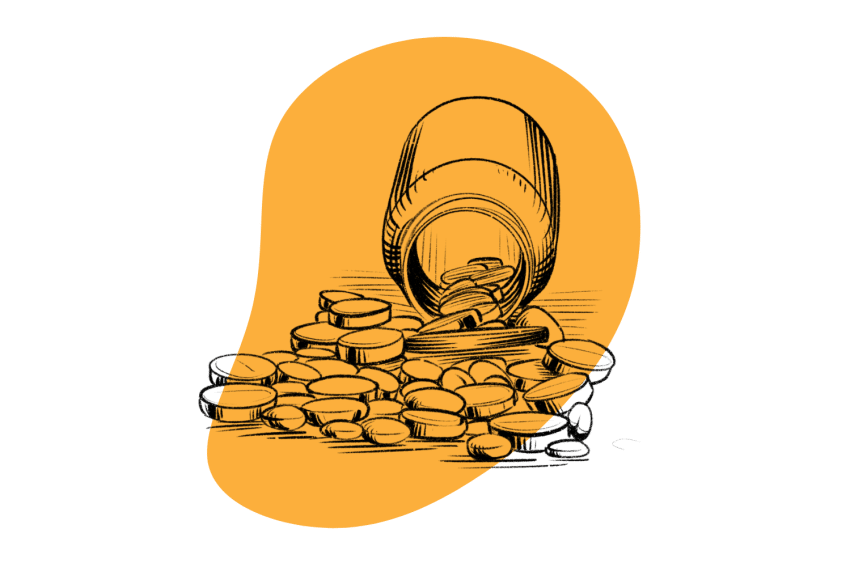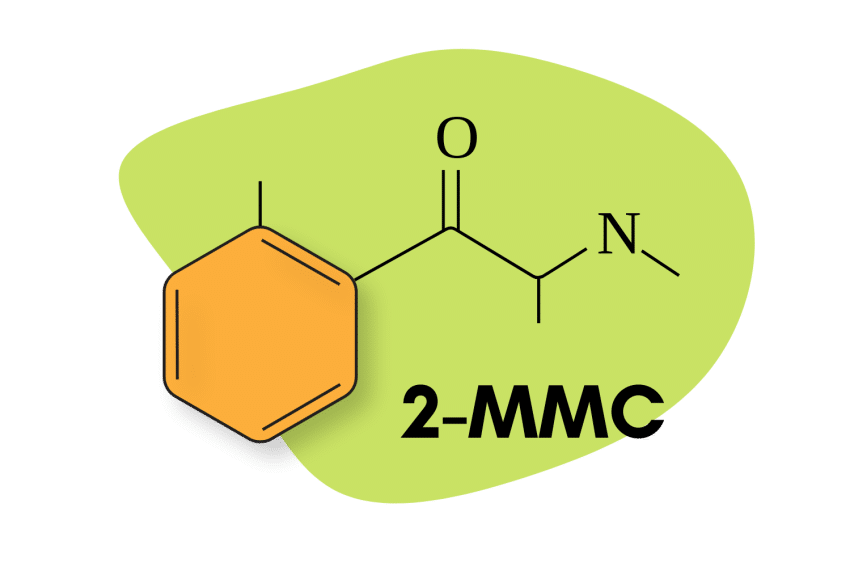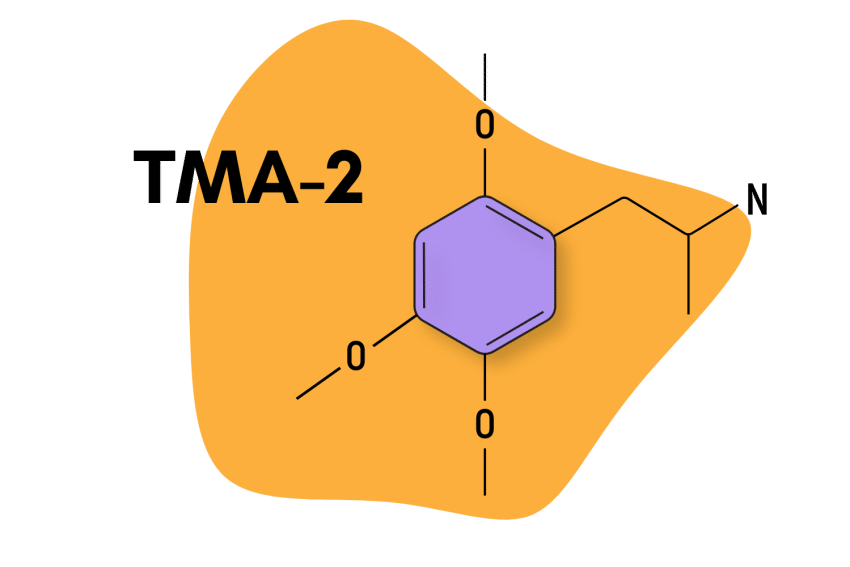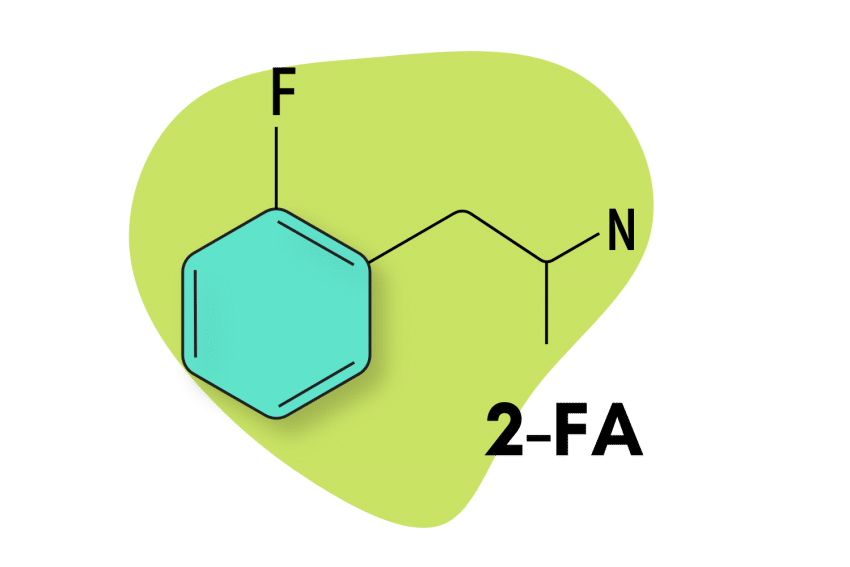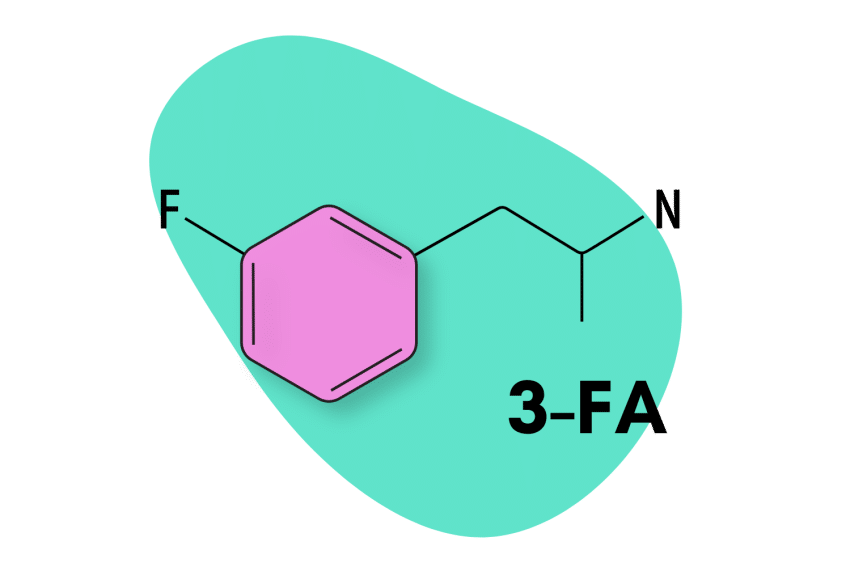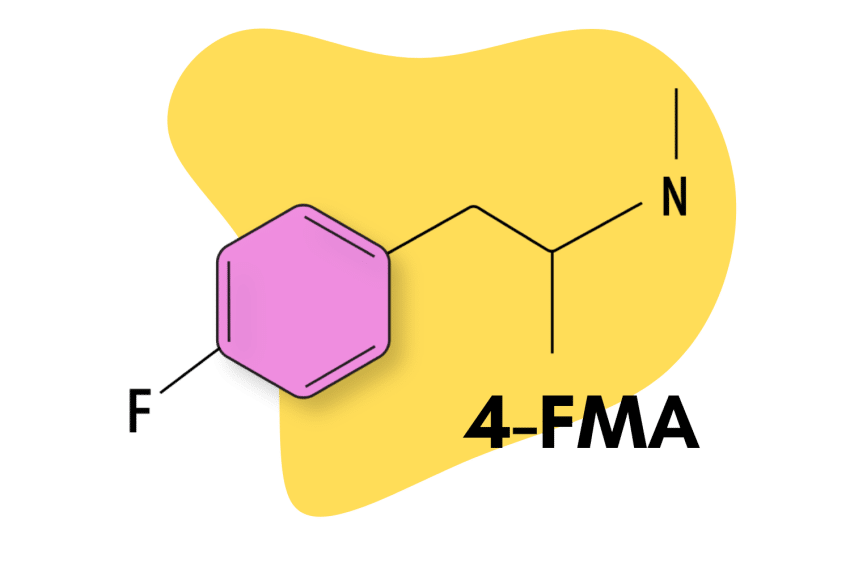Here’s Why You Should Pass On The Amphetamine PMMA (Para-Methoxymethamphetamine)
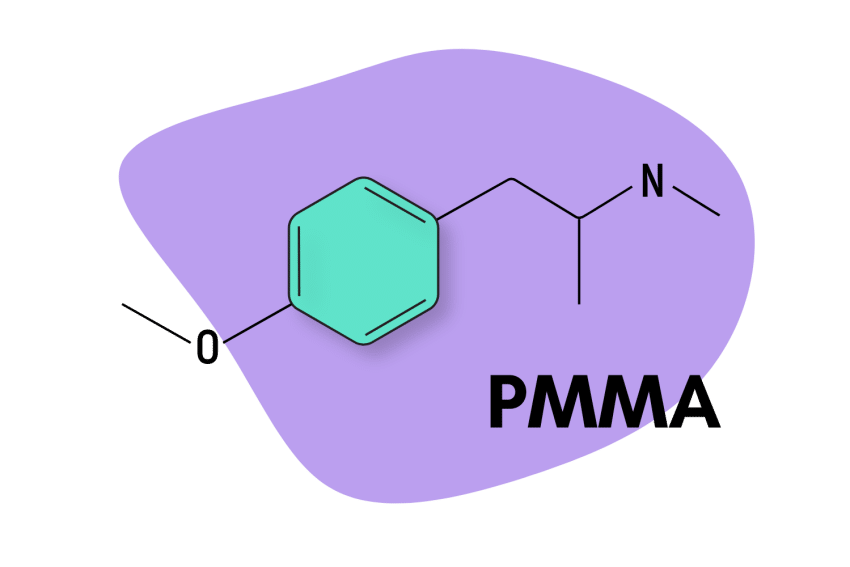
PMMA (para-methoxymethamphetamine) is classified as a substituted amphetamine most closely related to PMA (para-methoxyamphetamine). PMMA is the less potent of the two.
Both of these synthetic molecules are common adulterants in MDMA and MDA pills and carry a high risk of overdose-related injury or death. Neither is considered to have any recreational value.
These substances are one of the primary reasons why people taking MDMA or MDA need to test a sample of their drugs before taking them.
It’s unwise to take PMMA for any reason.
PMMA Specs
| Chemical Name | Para-Methoxymethamphetamine |
| Level of Risk | Extremely High |
| Other Names | N/A |
| Most Common Side Effects | Psychosis, seizures, anxiety, paranoia, agitation, confusion, increased heart rate and blood pressure, palpitations, chest pain, and difficulty breathing. |
| Duration of Effects | Six to twelve hours |
| Estimated Threshold Dose | Not used |
| Common Dose | 80 to 100 mg (not recommended) |
| Legality/Status | Research Chemical |
| PubChem ID: | 90766 |
| CAS# | 22331-70-0 |
Tripsitter Safe PMMA Guidelines
⛔ We highly recommend avoiding this substance altogether. Always test your pills with the Marquis and Leibermann reagents to ensure it doesn’t contain PMMA or its close relative, PMA.
What Are The Effects of PMMA?
Despite being a substituted amphetamine with serotonergic action, there’s doubt as to whether PMMA actually causes the euphoric and empathogenic effects traditionally associated with these compounds.
It’s possible that it does contain some of this action, but, in the end, the side effects are so overwhelming that attempting to enjoy these effects is practically impossible.
The effects of PMMA basically read like a long list of side effects.
Here are some of the effects you can expect after taking PMMA:
- Abnormal heartbeat
- Dehydration
- Delusional thought patterns
- Dizziness
- Increased body temperature
- Muscle tremors
- Nausea and vomiting
- Seizures
- Severe mental stimulation
- Suppressed appetite
- Teeth grinding
- Temporary erectile dysfunction
- Vibrating vision
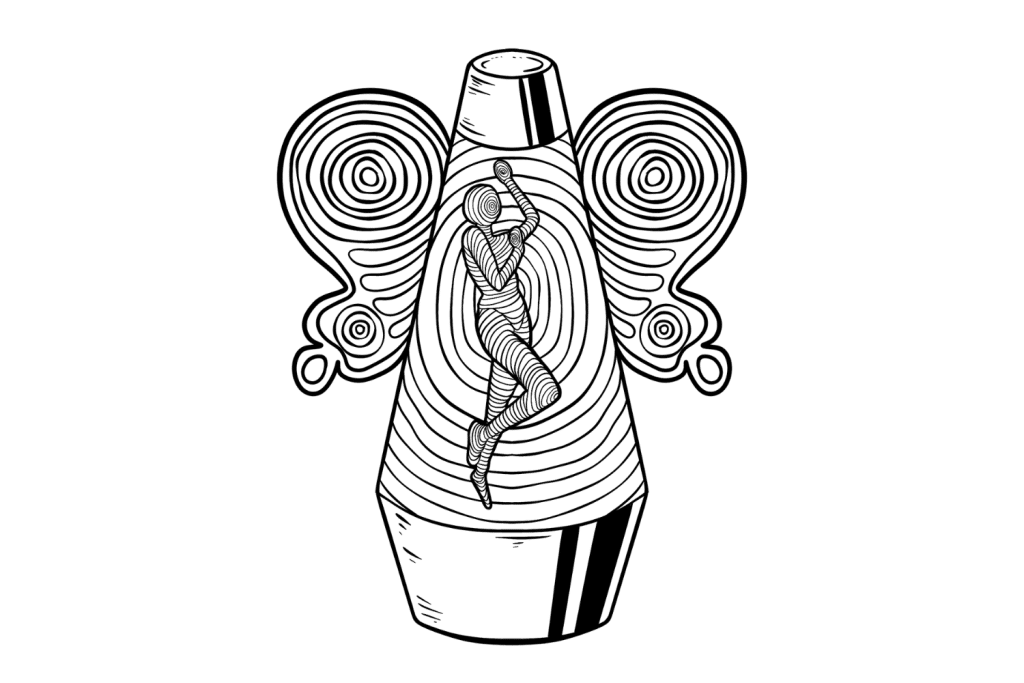
The quality of PMMA’s stimulation is usually considered quite intense, even at lower doses, while dizziness and increased body temperature are also quite common. Also, the presence of empathogenic effects and euphoria does appear to be present but are overshadowed by the potency of the side effects.
Finally, PMMA is reported as having a relatively slow onset of effects, which makes things even worse, as many users will often choose to redose and increase the toxicity they’re being exposed to.
Is PMMA Safe? Risks & Side Effects
There are many compounds that, although carrying significant risks, can still be consumed in relative safety if the right precautions are observed. When it comes to PMMA, though, this does not apply.
PMMA is not a safe compound and should never be willingly consumed.
At this point, the potent toxicity of PMMA has been well established.In fact, in the early 2010s, several deaths have been linked to the use of misrepresented tablets and capsules of MDMA, which actually contained PMMA.

A cluster of fatal poisonings related to PMMA was also discovered in Norway between 2010 and 2013, involving 29 deaths. There have been many other cases like this around the world.
However, it’s important to understand that the dangerous side effects produced by PMMA are actually quite common for drugs in the amphetamine family. PMMA and PMA just present with more of the side effects from this family than with the desired effects.
Besides dizziness and abnormal heart-related reactions, the most lethal aspect of PMMA is its potential to cause extreme hyperthermia (increased body temperature). The cause of this property is suspected to be related to its ability to inhibit MAO-A and, at the same time, release large amounts of serotonin, effectively causing serotonin syndrome. It also appears to activate the hypothalamus more strongly than MDMA — which could also lead to an increase in body temperature.
When it comes to PMMA, here are the primary dangers that users must watch out for:
- Hyperthermia
- Serotonin syndrome
- Dehydration and electrolyte imbalances
- Kidney and liver damage
- Psychiatric symptoms
- Overdose
- Cardiovascular complications
Harm Reduction: PMMA
Harm reduction is an approach to drug use that aims to reduce the negative consequences associated with drug use.
In the case of PMMA, the best harm-reduction approach is to avoid it as best you can.
Always test MDMA, MDA, or other amphetamines for the presence of PMMA or PMA, and avoid it if any of the tests indicate these substances are present.

One of the main reasons this drug is so dangerous is that it takes a long time to kick in. Many people will take what they think is MDMA that actually contains PMA or PMMA. After an hour, when the effects still haven’t started, users will think the pills were a dud and take a second dose. Later, both doses of PMMA kick in to cause significant, potentially life-threatening side effects.
Other harm reduction techniques to offset the negative side effects of PMMA include:
- Stay hydrated
- Avoid mixing multiple substances
- Never double dose
- Don’t hesitate to ask for help when you need it
- Always have a responsible trip sitter around

